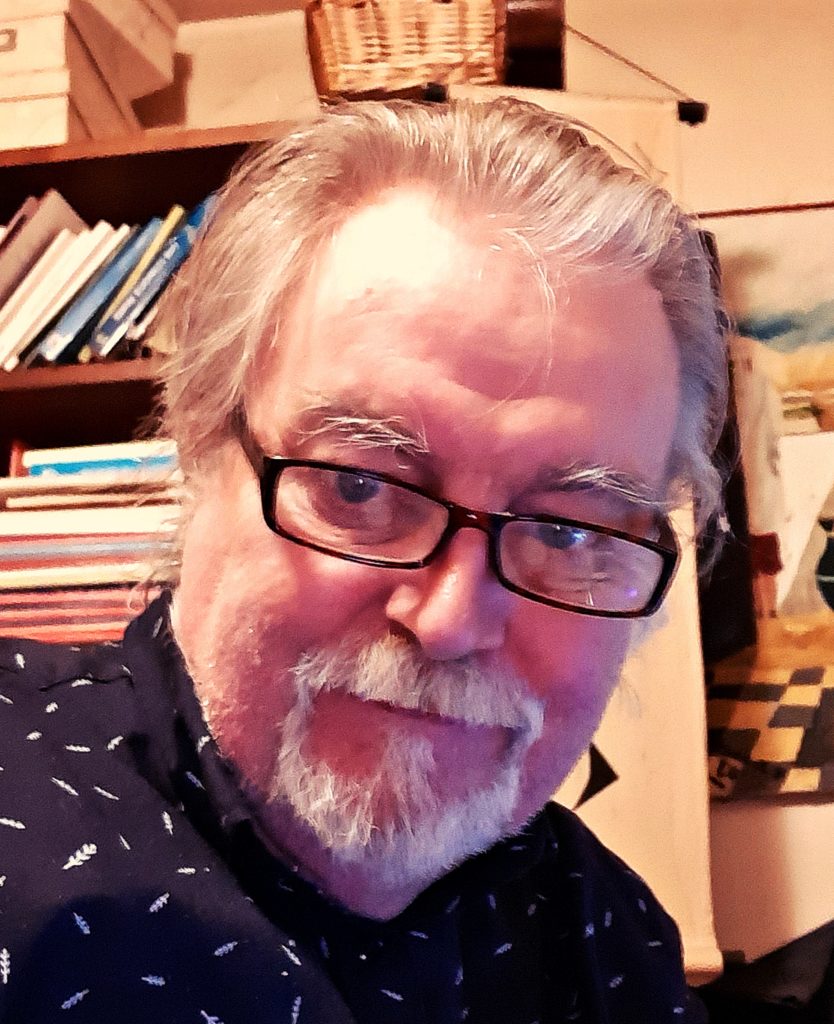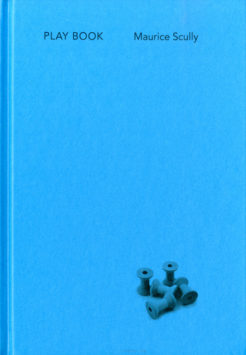Play Book. Maurice Scully. Coracle; £18; hb; 186pp;
9780906630617
Mention the Irish avant-garde in literature and names like Samuel Beckett and Thomas MacGreevy surface. Both poets went to Paris. Both knew Joyce. In Paris, MacGreevy was influenced by modernism. If one stayed in Ireland, of course, one wasn’t. Eliot, too, inserted his tuppence worth. In any case, MacGreevy—who published only one book of poems in his lifetime but several on art—and those few who went with him, represented a conscious break from Irish poetic traditionalism in terms of form and imaginative grasp. Like Brian Coffey, a fellow roving modernist, he was heavily influenced by his Catholicism. And one might suggest, a break with the high-blown world of Yeats and nationalism.
Google ‘Irish modernist poets’ and one finds Maurice Scully, born in Dublin in 1952, listed—rightly—among them. His circle in modern Irish poetry is small. It might be sufficiently argued that modernism, if that’s a decent description, never caught on to any great degree in Ireland. Irish poets followed the lyric formal line, preferring to keep within the accepted stanzaic structure and rarely straying from it. Many have remained pastoral. Even amongst younger contemporary poets, the traditional form is overall the most common, though perhaps one might suggest that ‘performance poetry’ has rules of its own.
Maurice Scully—whom I first met in a writers’ seminar chaired by the late Anthony Cronin in NUI, Galway, in the late 1970s—has ploughed a relentlessly modernist furrow, his work never truly conforming to the rules and regulations of the poetry world around him. Even today, any ‘experimental’ Irish poet must find him/herself working in a small space and for a small audience in an already small poetry world. As a member of Aosdána, his contribution as a poet has been recognised by his peers. He has published a good deal; it’s not as if his work isn’t out there and available. He has challenged himself as a poet: a 25-year-long project encompassing five books is daunting enough. Yet he has published only twice with major Irish poetry publishers and more often with publishers, such as Shearsman, in the UK. But the Irish poetry voice remains resolutely singing in a more clubbable key.
Play Book is a hardback gathering of often minimalist poems with no particular joining theme, but which, when taken all together, give a fair estimation of the breadth of Scully’s thematic concerns and the delicacy and patience required of his craft. Impressions seem to be what count; the ‘narrative’ is stripped to the bone and there is a consequent measured intensity:
Slim textures
in circles squares
diamonds cylinders –
I heard
you rang
you answered
you
The poems appear to have sections rather than individual titles. Introspective? In some cases that might be said. Scully does not avoid by any means the ‘wider’ world, but one thinks of the photo of his writing shed featured at the book’s end and cannot avoid an image of a poet alone with his intense creating self, writing mainly from the immediate and personal:
passing time may
be makes orb or
its coherence
your memory my
fingers our lives
together over
there hold still
(from ‘Pip’)
What, one may argue, is Scully doing that is so different, or different at all, from the poetry of most of his fellows? For one thing, he’s stripping away conventional narrative and any accompanying descriptive/deceptive flourishes. The lyrical is for the most part abandoned as unnecessary, even intrusive. Impression, the weight of the individual word, the suggestion of environment, place, attitude—all these have precedence. Language is merely a means of saying something. Interpretation and identification are fluid yet determined by the linguistic Lego pieces on the page. To an extent, the reader does most of the work. At another level, Scully is stripping away the bodywork so that we can see the engine laid bare; this is what a poem looks like when you take away the superfluities. This is what a Bauhaus poem might look like. Getting down to the very essence of poetic expression, Maurice Scully informs, delights and challenges. Such directness deserves a wider audience.
Fred Johnston, February 2020

Fred Johnston is a poet, novelist and short-story writer, and founder of the annual Cúirt festival of literature in Galway.












